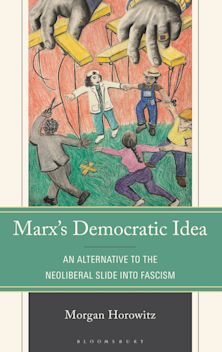Kill Box
Military Drone Systems and Cultural Production
Kill Box
Military Drone Systems and Cultural Production
This product is usually dispatched within 1 week
- Delivery and returns info
-
Free US delivery on orders $35 or over
You must sign in to add this item to your wishlist. Please sign in or create an account
Description
Drone warfare represents one of the most pressing moral and political problems of contemporary military ethics. Since the beginning of the American drone program in the late twentieth century, drone technologies have been used to conduct remote extrajudicial assassinations, to violate national sovereignty, and to conduct intrusive surveillance in contravention of international human rights norms, among other controversial uses. Today, military drones are used by dozens of military forces. As such, these technologies pose urgent questions which problematize well-established ways of thinking about central aspects of the ethics of warfare, such as justice, sovereignty, battlefield trauma, the political and physical limits of conflict, and, perhaps most prominently of all, the legitimacy of military violence. Though some of these concerns are well-worn, their central role in – and reconfiguration by – drone warfare means that they deserve serious reconsideration.
Kill Box investigates this urgent conceptual territory through readings of the popular cultural productions that have emerged as a part of these debates, and reveals the ways in which narrative texts have been an integral part of the framing of these political and philosophical conversations. Examining well-known single-issue drone texts, such as Eye in the Sky, Good Kill, and The Drone Eats with Me, alongside lesser known texts, such as pulp novels, genre sci-fi, and Netflix thrillers, this new book shows us the surprisingly versatile and elastic ways in which drone discourse continues to be co-constituted by narrative entertainment.
Product details
| Published | Dec 17 2024 |
|---|---|
| Format | Hardback |
| Edition | 1st |
| Extent | 168 |
| ISBN | 9781538189825 |
| Imprint | Rowman & Littlefield Publishers |
| Illustrations | 9 BW Photos |
| Dimensions | 9 x 6 inches |
| Series | Off the Fence: Morality, Politics and Society |
| Publisher | Bloomsbury Publishing |
About the contributors
Reviews
-
A searing exposition of how the cultural portrayal of drone warfare in many films, TV series and books are part and parcel of the kill box. Adams carefully lays out how many of these productions-even those that appear at first blush critical-relentlessly legitimise the use of the drone to enforce state power. A must read for all drone scholars.
Chris Cole, founder-director of Drone Wars UK
-
How does a global project of state terror come to be seen as a normal, necessary, and legitimate feature of international order? Kill Box provides a compelling account of how popular representations of drone warfare have seduced publics and audiences into tolerating the seemingly intolerable. Engaging and incisive, Alex Adams expertly maps the cultural terrain of drone warfare in order to show we might challenge this new imperial ideology.
Jamie Johnson, lecturer in security, conflict and international development, University of Leicester
-
With fierce urgency on every page, Alex Adams exposes the cultural artefacts and political imaginaries that legitimate drone warfare. Through attentive and insightful readings of drone fictions, Adams shows how the kill box is not only a military technique but an apparatus for knowing and acting in the world.
Michael Richardson, associate professor of media and culture at UNSW Sydney and author of Nonhuman Witnessing: War, Data, and Ecology after the End of the World
-
This book confirms Alex Adams' position as a vitally important scholar and critical voice on state violence and the global war on terror. Kill Box is an urgent, searing study of how literature, film and television mediate our understanding of drone violence and offers a compelling, broader theorization of the kill box as cultural-political knowledge system. Adams' meticulous close readings of a diverse set of texts show how drone fictions work ideologically to naturalize or suggest the inevitability of this form of state terrorism-and also how some works have forcefully challenged it.
Arin Keeble, Edinburgh Napier University
-
Briskly paced and wide-ranging, this timely book shows how popular representations of drone warfare in film, television, and literature encode some of the most pressing ethical and political questions surrounding remote violence, including its entanglements with imperialism, heteronormativity, and racism. The kill box, Adams argues, is nothing less than a regime of truth that legitimizes, even as it occludes the workings of, extrajudicial power. It is both the stuff of cutting-edge military technologies and the stuff of everyday culture, hidden in plain sight.
Beryl Pong, UKRI Future Leaders fellow and Director of the Centre for Drones and Culture, University of Cambridge

ONLINE RESOURCES
Bloomsbury Collections
This book is available on Bloomsbury Collections where your library has access.



































